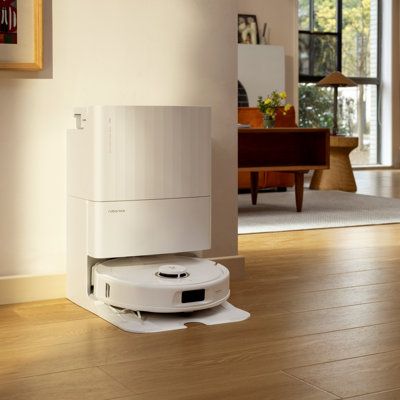Your 20s are an incredibly thrilling decade in your life. You’re advancing in your career, figuring out where you want to live, and making major decisions that will set the tone for the rest of your life.
And, while you’re 20-somethings are incredibly exciting, they can also be somewhat challenging.
For some of us, it’s the first time we are dealing with a lot of adult responsibilities like managing a paycheck, paying for rent, health care on our own, getting out of debt, and saving for our future. Adulting is tough, and it can all be very overwhelming – and that is exactly why it’s incredibly important to establish good personal finance habits now.
While investing in your 20’s may sound boring, starting young is easily the best way to get ahead.
“But, I can barely afford to make rent every month. Isn’t investing for when you’re older and making real money?” you might be thinking.
The simple answer to that is: No – you should absolutely be saving and investing for Future You. “By investing early, you can really build your wealth – and you don’t have to be an expert to do it,” says Sallie Krawcheck, CEO and co-founder Ellevest, the investing platform for women. All you need is answers to the right questions.
Thankfully, we tapped Krawcheck to lay out the five money rules that people in their 20s should always follow. Let’s get started.
✔️ Pay down your bad debt.
74% of women in their 20’s have debt, and 41% of you have high-interest rate debt.
What to do with credit card debt: First, work on paying your high-interest rate debt. Seriously, if you have any kind of balance on a credit card, stop using it and pay it off. Nothing is worse than paying 10-15% interest (or more). This interest is higher than any returns you could see from investing, so make this a priority and drop that credit card balance. Next, transfer any credit card balances you have to a 0% interest rate card. Then, use the savings to pay down more debt.
What to do with student loans: If you haven’t already, set them on auto-pay.
Doing this can typically reduce your interest rate by %0.25. You should also consider refinancing any interest rates that are in the double-digits. You’ve probably been hearing about refinancing from your friends, so why don’t you try it. It doesn’t hurt, and it could pay off a lot. You can use a platform like Lendkey to find, customize, and fund your loan through a network of credit unions and community banks. This way, you can see which lender can offer the best rates.
✔️ Build up your emergency fund.
37% of twentysomething women changed jobs, and 41% of you move in the past two years. You’re very busy!
What to do: Your first savings milestone is to build an emergency fund. This should be at least three months of take-home pay, in case you get fired (hey, it happens — more than any of us like to think), your roof caves through, or in case you have to take time away from work for, you know, an emergency. This emergency fund money should be held in cash, for safety.
Where to put your emergency fund money: While a lot of advisers charge for emergency fund or “safety” investments, we found that Ellevest charges no management fee for money held as part of an emergency fund.
This emergency fund is invested as cash in an FDIC-insured bank account and earns a trickle of interest, but it won’t lose principal either (like it would sitting in your bank savings). Also, seeing your emergency fun incorporated into your plan if you choose to keep it with Ellevest may help you get a more comprehensive view of your finances.
✔️ Get paid what you’re really worth.
28% of your twentysomethings got a promotion in the past two years. Congratulations! But, make sure you’re getting paid what you’re worth.
What to do: Starting with low pay can be a drag for years, since you get raises off that base. Slay the work, learn negotiation skills, practice in advance, and ask for the raises and promotions you deserve.
And the next step is…
✔️Invest in your future goals.
I know it’s far away, but if you’ve checked off all of the above – paid off your credit card debt, set aside your emergency fund money – it’s time start thinking about investing in your future goals.
Why? Because, as we mentioned, thanks to the power of compounding, a dollar invested in your 20’s is more valuable than a dollar invested in your 30’s or 40’s.
But, where and how should you get started? One of the best steps you can take is automating your investments so they can take care of themselves. The best – and easiest – way to automate investments is to sign up with a robo-advisor. If you’re unfamiliar with robo-advisors, they’re companies that provide automated, algorithm-driven financial planning services with little to no human supervision.
Ellevest, for example, is a robo-advisor dedicated to helping women invest by considering gender-specific financial differences – they also have no minimum to start investing so you can start investing with as little or as much as you like.
It’s also a lot easier to build real wealth when you’ve made saving and investing a priority instead of an afterthought.

Next up, asking for a raise? Here are 5 ways to figure out if you’re underpaid — and get even.
Disclosures: We’re excited to be partnering with Ellevest to start this conversation about women and money. We may receive compensation if you become anEllevest client.







